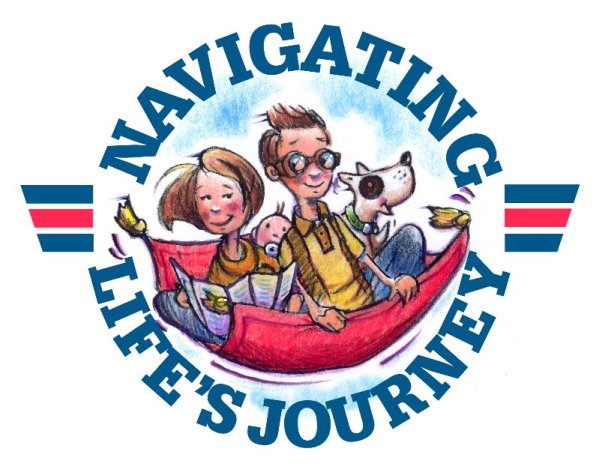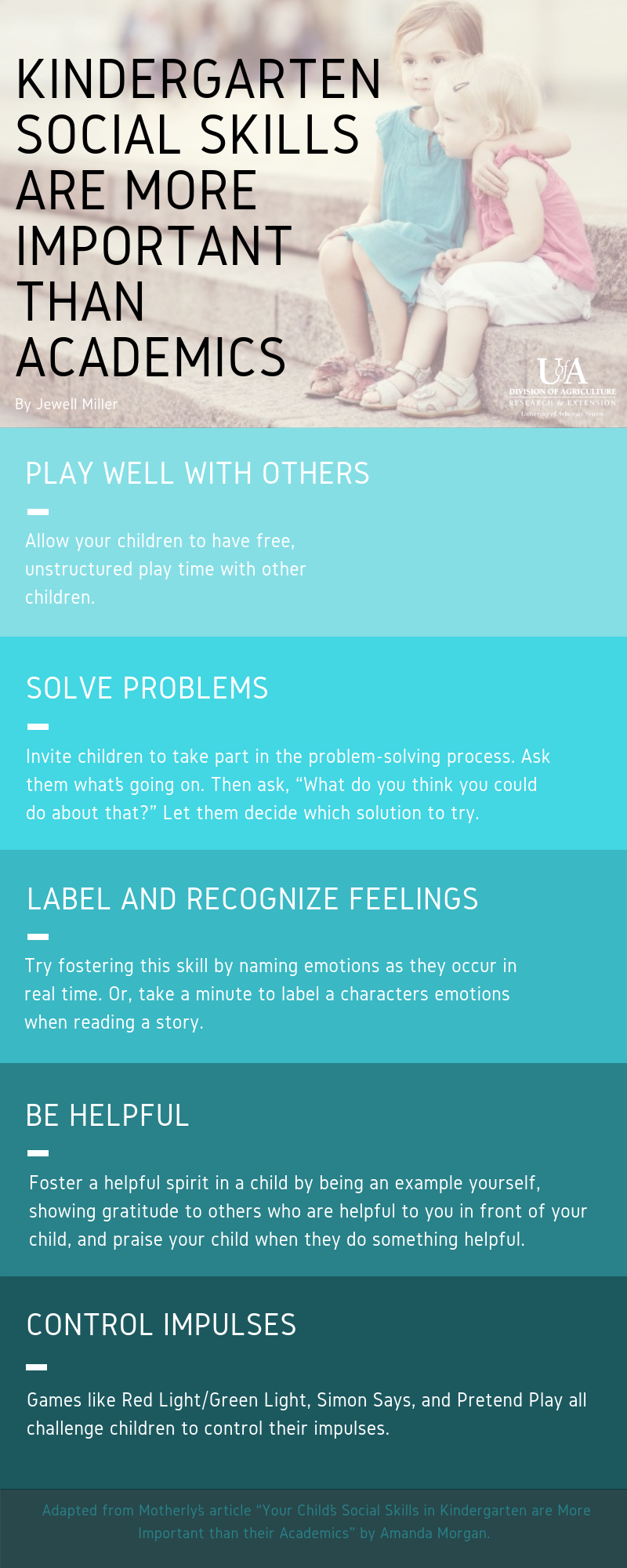
Navigating Life's Journey Blog
Helping others navigate this journey of Life!
A weekly blog from the Family & Consumer Sciences Department
Kindergarten Social Skills are More Important than Academics
Kindergarten social skills are more important than academics.
Wait, what? For real? I thought Tommy’s ability to count to 500 by the end of Kindergarten guaranteed him success as an adult!
Mmmm… apparently not, parents.
“A study published in 2015 showed that even while controlling for family demographics and early academic ability, the social skills observed in kindergarten showed significant correlation with well-being at age 25.”
So there you have it. Social skill are a far better predictor of long-term success than early academics.
With this in mind, let’s look at 5 social competencies you can foster in your child.
- Play Well with Others: Allow your children to have free, unstructured play time with other children. This doesn’t mean they’re unsupervised, but rather they don’t have anything particular to do like they would in a soccer or dance activity. Free play give children the opportunity to engage with others, learn how to negotiate, solve problems, take turns, share and experiment.
- Solve Problems: Parent tend to swoop in and save their children at the first sign of distress or discomfort. But, if we always save our children from their problems, how will they learn to save themselves? Perhaps it’s better to enter-in to a situation with them, instead of illuminating the threat altogether. A practical way to do this is to invite the child to take part in the problem-solving process. Ask them what’s going on, even if you already know the answer. Then ask, “What do you think you could do about that?” and let them decide which solution to try.
Next, follow up. Ask if it worked or didn’t work. What could be done differently? These questions provide an opportunity for children to evaluate and make improvements as need. The parent’s job is simply to allow them to express their ideas or failures in a safe environment, and give guidance when necessary. Continue encouraging them to try and have patience in the process. Affirm that you’ll be there to help them get back up and try again even if they fail. Remember, failure is one of the greatest teachers and will help them be better problem-solvers in the future.
- Label and Recognize Feelings: Emotional intelligence is also important to adult success. Those who are more perceptive to the emotions of others, tend to get along better with people. Try fostering this skill by naming emotions as they occur in real time. You could name your feelings, your child’s, or another person present. Or, take a minute to label the emotions of a character when reading a story. Ask, “How do you think he felt when that happened?” and give them time to respond.
- Be Helpful: “Being helpful to others requires children to look beyond themselves and recognize the needs of others.” Wow! How much do we wish adults could master this?? The secret is, it starts young. You can foster a helpful spirit in a child by being an example yourself, showing gratitude to others who are helpful to you in front of your child, and praise your child when they do something helpful. This could be anything from putting away groceries to helping a sibling get dressed. And get creative! Tell them their hero’s, like Batman or Wonder Woman, are helpers too! That way every time they do something helpful, they’ll feel like a hero.
- Control Impulses: This skill is vital to success in adulthood. Although it’s a skill that doesn’t completely finish developing until you’re an adult, the most rapid development begins in early childhood. Luckily, it’s an easy skill we can help our children practice! Games like Red Light/Green Light, Simon Says, and Pretend Play all challenge children to control their impulses.
In a world where academic pressure is taking over, take a moment to step back and remember, social skills are important too and are better predictors of future well-being. Allow children time to play freely, solve their own problems, recognize feelings, be helpful, and practice controlling impulses. There’s plenty of time for them to learn how to count to 500 later.
Adapted from Motherly’s article “Your Child’s Social Skills in Kindergarten are More Important than their Academics” by Amanda Morgan. https://www.mother.ly/child/your-childs-social-skills-in-kindergarten-are-more-important-than-their-academics
Quotes: Amanda Morgan
The Relationship between Kindergarten Social Competence and Future Wellness Study (2015): https://ajph.aphapublications.org/doi/full/10.2105/AJPH.2015.302630
